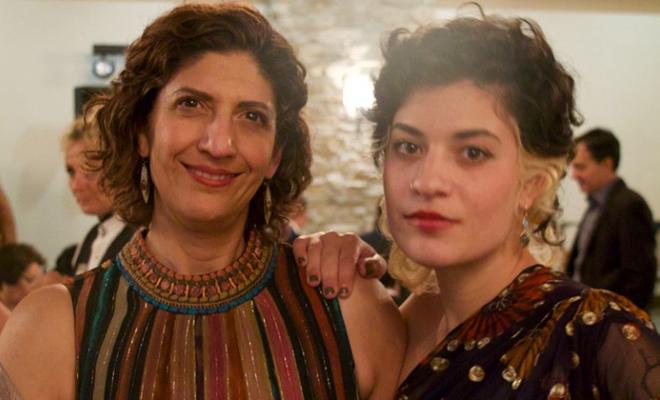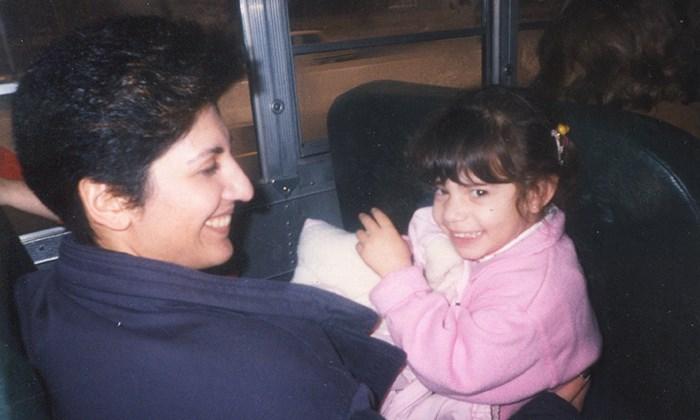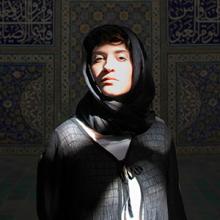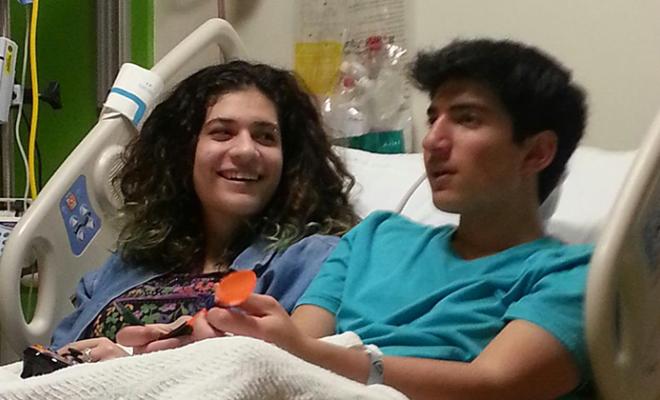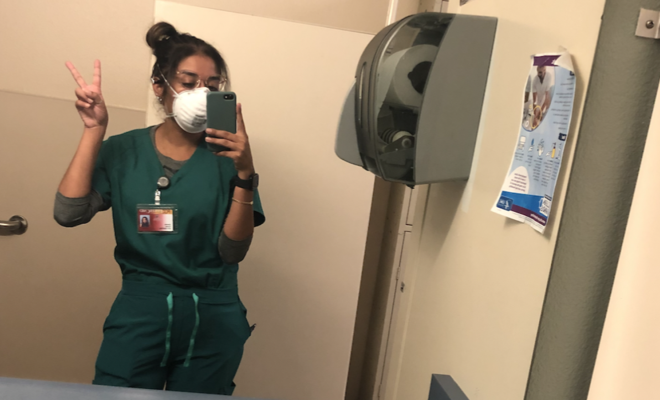My mother's 28-year-long career as a nurse equipped her to be an exceptionally skilled and knowledgeable caregiver for me -- a person with cystic fibrosis. But, being such a skilled caregiver meant my mother had to learn how to balance mom mode and nurse mode. When I was a child, this was a hard balancing act for her, particularly with my rebellious streak of lying about taking medications and skipping treatments. Now that I am an adult, we've reached a symbiotic point encouraging openness, honesty, and empathy that I often forget how hard it was.
“Dear mommy, I'm sorry … I want to do my best in everything to satisfy you and live up to your standards. But, I can't always do everything you expect me to do. I have been asked for so much, so fast. Only two years ago, I didn't have to worry about so much ...”
This paragraph begins an apology letter I wrote to my mother in elementary or middle school. Neither of us can remember the cause for such a letter, nor the possible stressors, worries, and new responsibilities informing the letter. The pleading voice of forgiveness feels foreign and trite. I roll my eyes at it.
I also deeply understand the agony my child-self attempts to convey, albeit in simple terms. As a kid, the agony felt like it would never end; as an adult, I know there's always room to grow.
When I try to remember how we got out of that stage in our relationship it feels very muddy. There's no step-by-step guide. No playbook. We just took the time, at our own paces, to start listening to each other more.
The biggest shift in my relationship with my mom happened when I began therapy. Although therapy came out of necessity and personal hardship, therapy has always made me excited. When I first started, it was like I could feel myself growing into the person I wanted to be, rather than wallowing in the person I hated being. Now, after each session I still leave my therapist's office lighter, more confident, and more at peace with myself and the world.
I loved sharing my therapy insights with my mom. I'd talk to her about problems she was going through and circle back to a concept or tool I learned in a recent session. Sometimes it would make my mom feel bad -- she'd say I was “therapy-talking” her. But, after a time, and after some of her own personal hardships, she joined me in the therapy boat.
Recently, my mom and I were sitting on the couch talking while drinking tea. I think I was feeling sad because I remember my head on her shoulder or chest, and she was sort of holding me. I had an emotional therapy session that day in which I had told my therapist that as a kid I felt responsible for my mother's emotions. That every time she was sad, I was sad because I felt like I was the one who was supposed to make her happy. We were silent and then my mother said, “Sometimes I'm so scared … that you're just going to get really, really sick.”
I told her that I was fine with dying if that would happen soon. Well, I said it in a much more eloquent way, of course, slower and with more words -- but that was the gist.
She began telling me of the other CF patients she had taken care of over the years. On the same week of my diagnosis in 1997, she had gone into the hospital to visit one of her favorite CF patients who was taking a turn for the worse. My mom told me about how the patient was afraid to see her.
“She said, 'I heard about your daughter, and I was so scared to see you knowing that she was diagnosed and I'm here not doing well,'” my mother said.
And that was when it clicked for me. Even though I could never meet this girl, we had this thing in common, this feeling of being responsible for other people's pain. Despite having absolutely no culpability in my diagnosis nor her decline in health, it weighed on her.
I have this theory that children who grow up sick often learn how to deal with other people's emotions by taking responsibility for them.
I think it comes from worrying so much that you are, or will, become a burden. This was one of the first things I realized in therapy that I needed to let go of. Taking responsibility for my mother's emotions was exhausting me. It was also holding me back from seeing where my mom's feelings came from. Letting go of this responsibility helped me see my mom as another person with complex thoughts, feelings, and experiences that I would only ever get a glimpse of.
Sometimes parents want to fix everything. Sometimes they will try their hardest to provide everything you need even when it's beyond their means. Sometimes you need to remind them to take care of themselves. Over time, you might do more on your own. But, they will always be there.
Reshaping my relationship with my mom was a process of learning how to rely on each other more intentionally. Going to therapy separately and working through our issues on our own makes it easier to be there more fully for one another now.
Caregiving should be a two-way street. But, caregiving also looks different for each giver and each receiver. Honoring what we can do and accepting that we can't do everything is so important.
Asking for help is hard. Learning how to tell when someone might need help takes time and effort. My mom and I are still working on that. We always will be. Our relationship will continue to change, like all parent-child relationships. I'm happy to say that -- for now -- we've found a way to change together.

